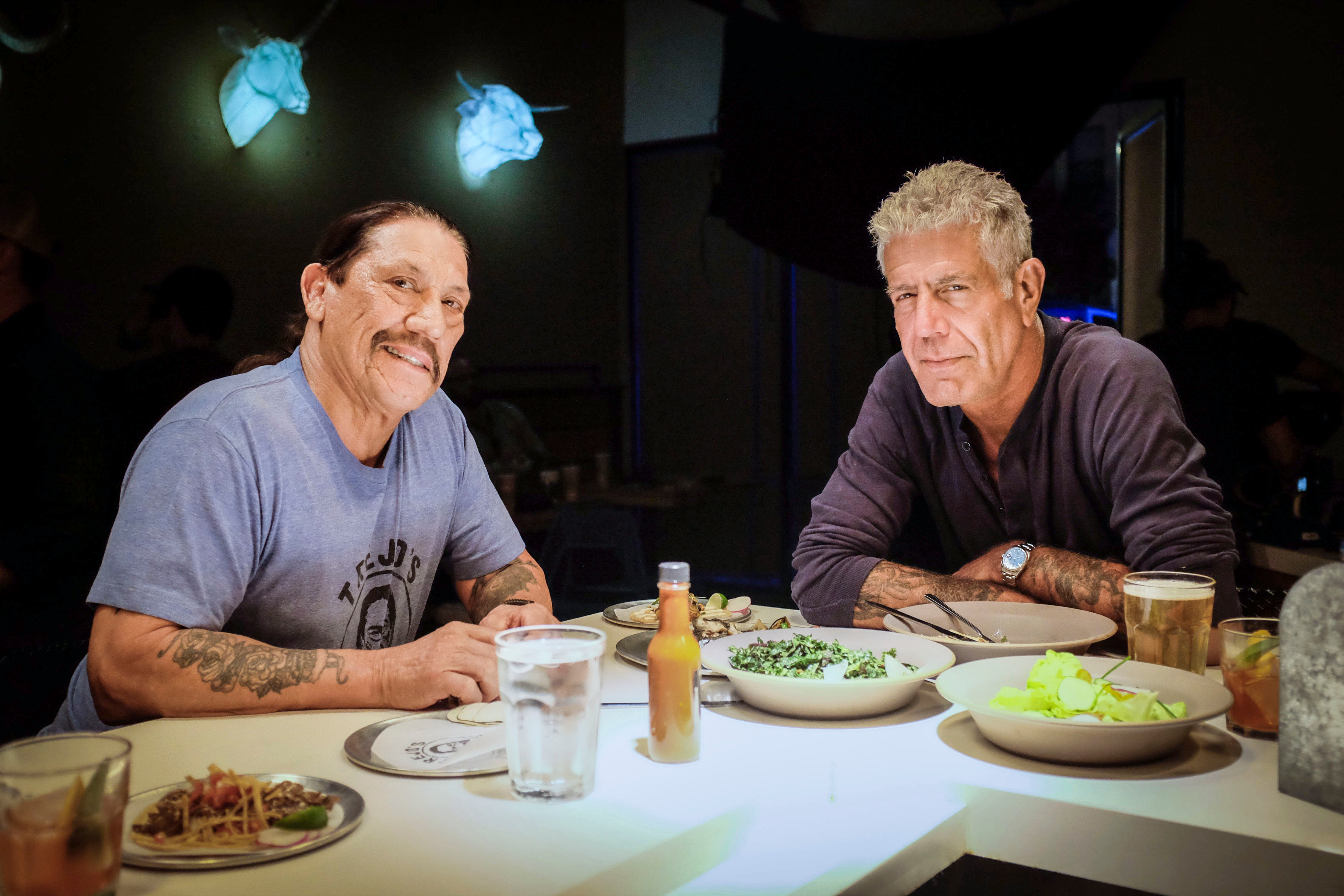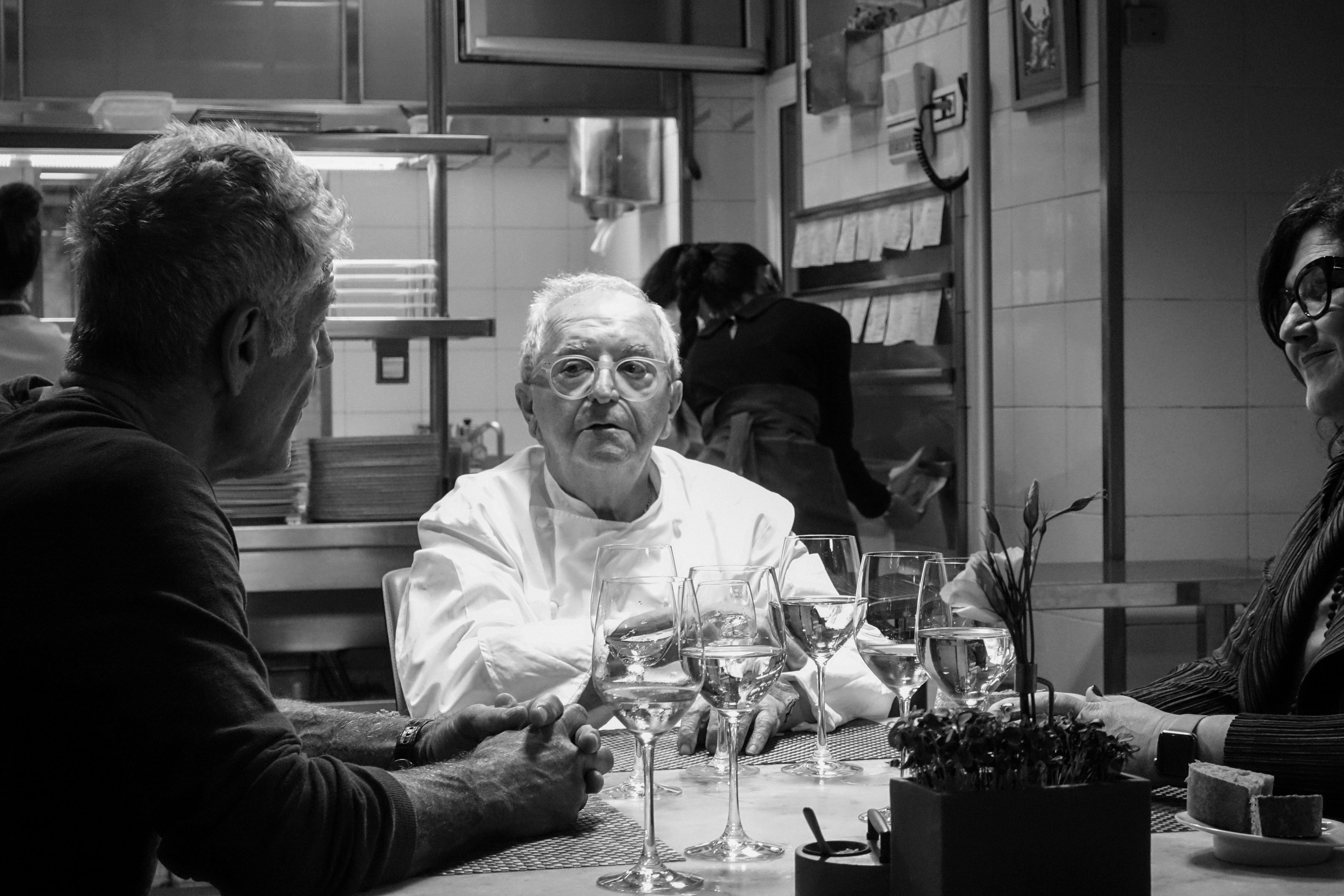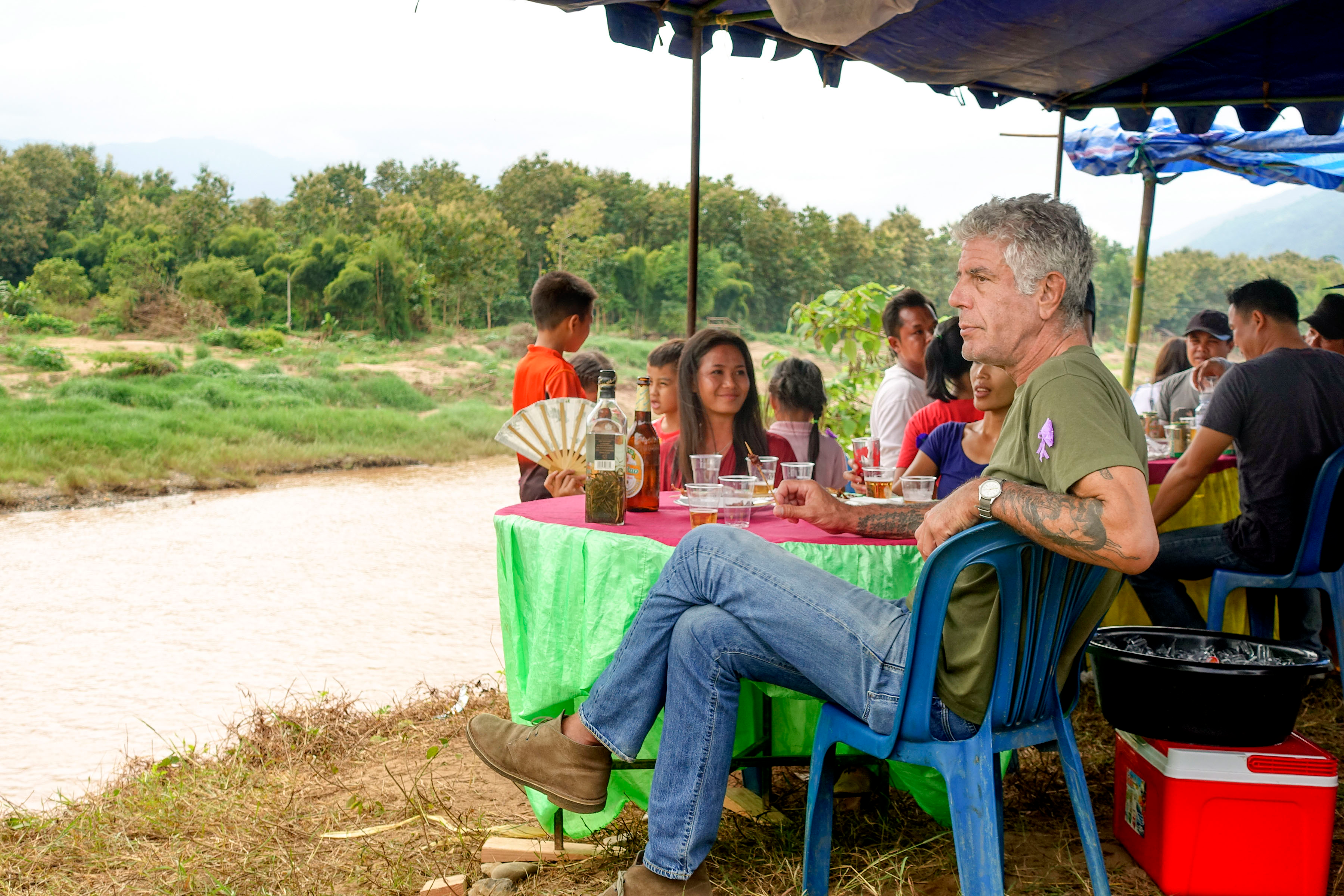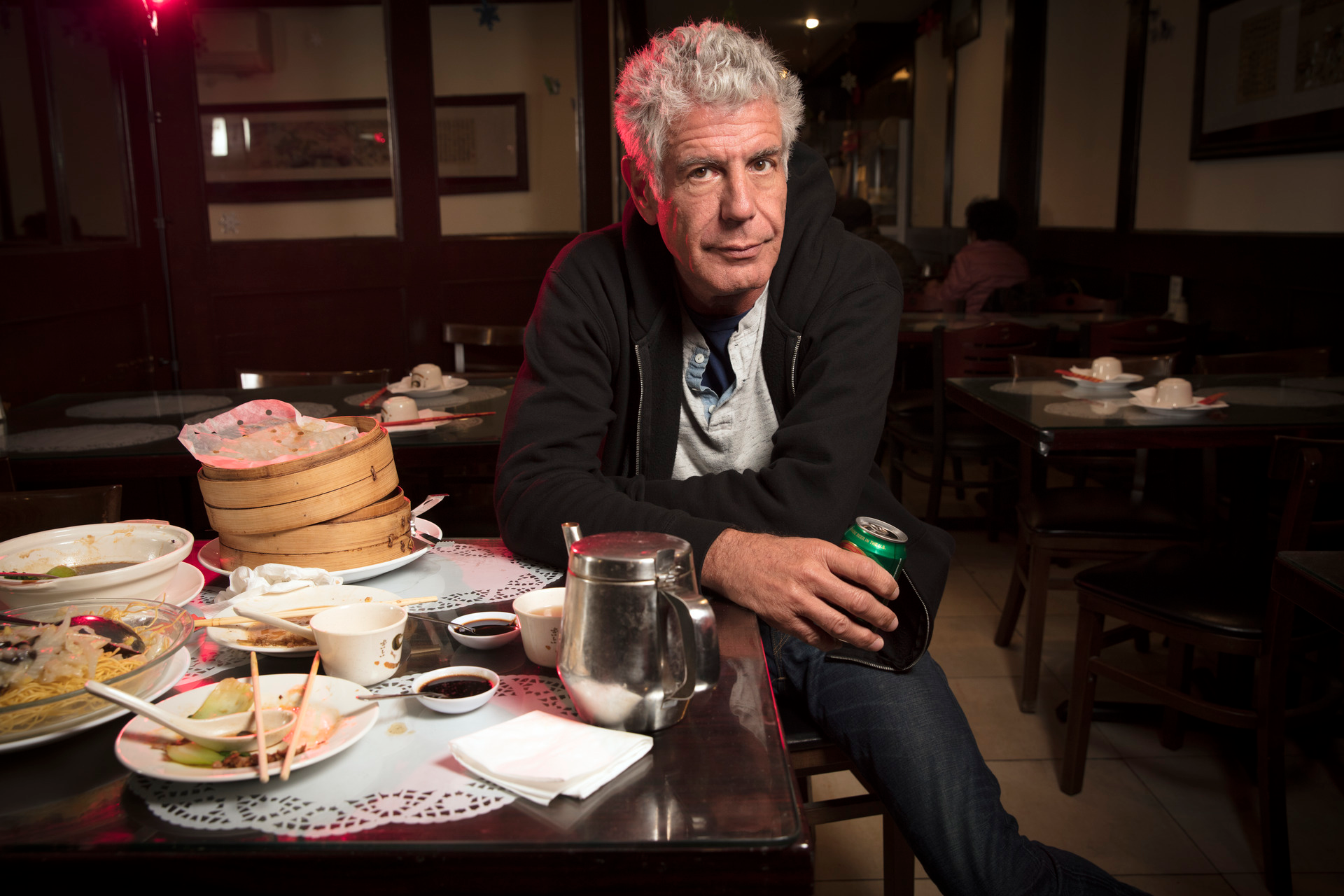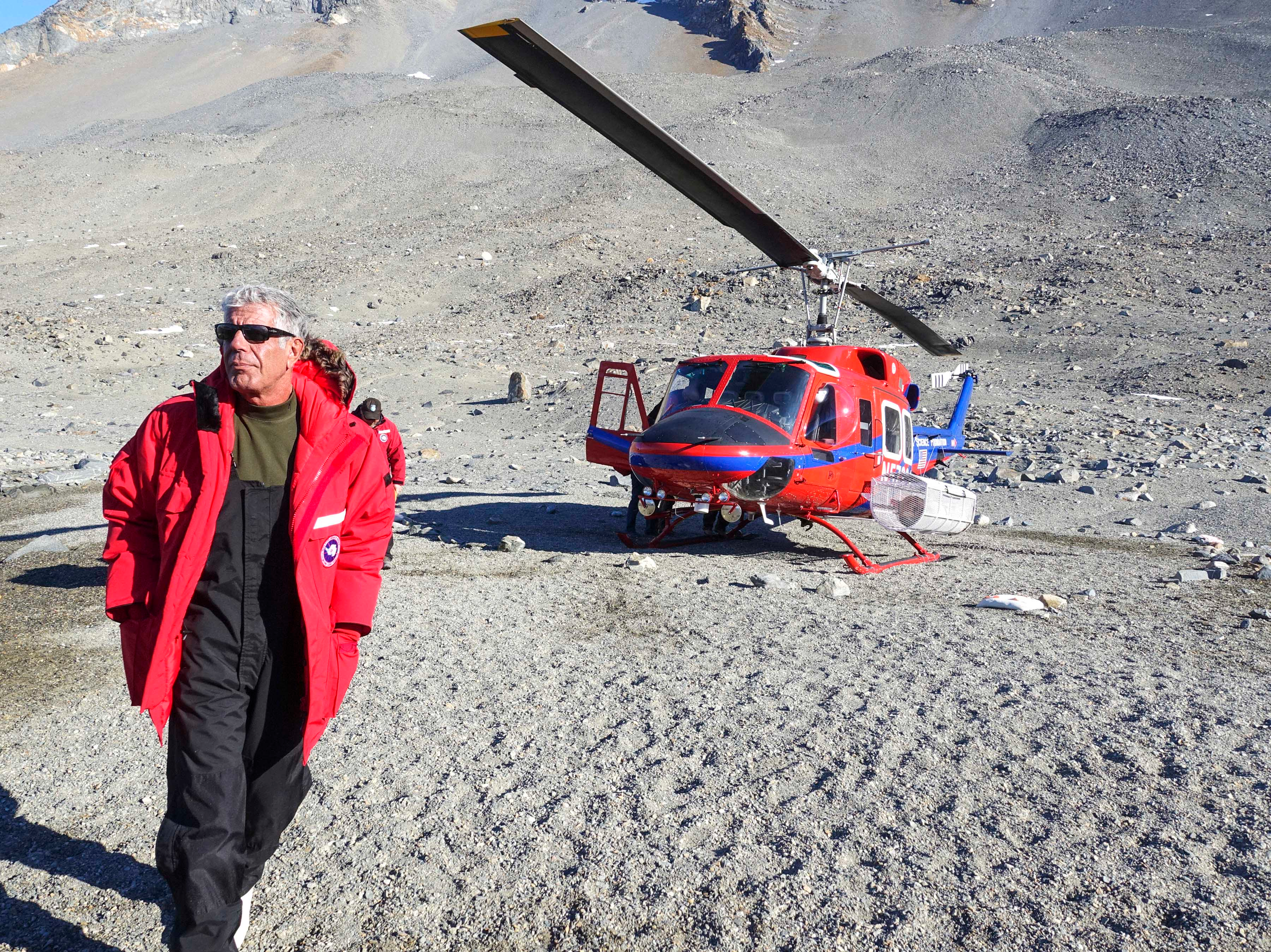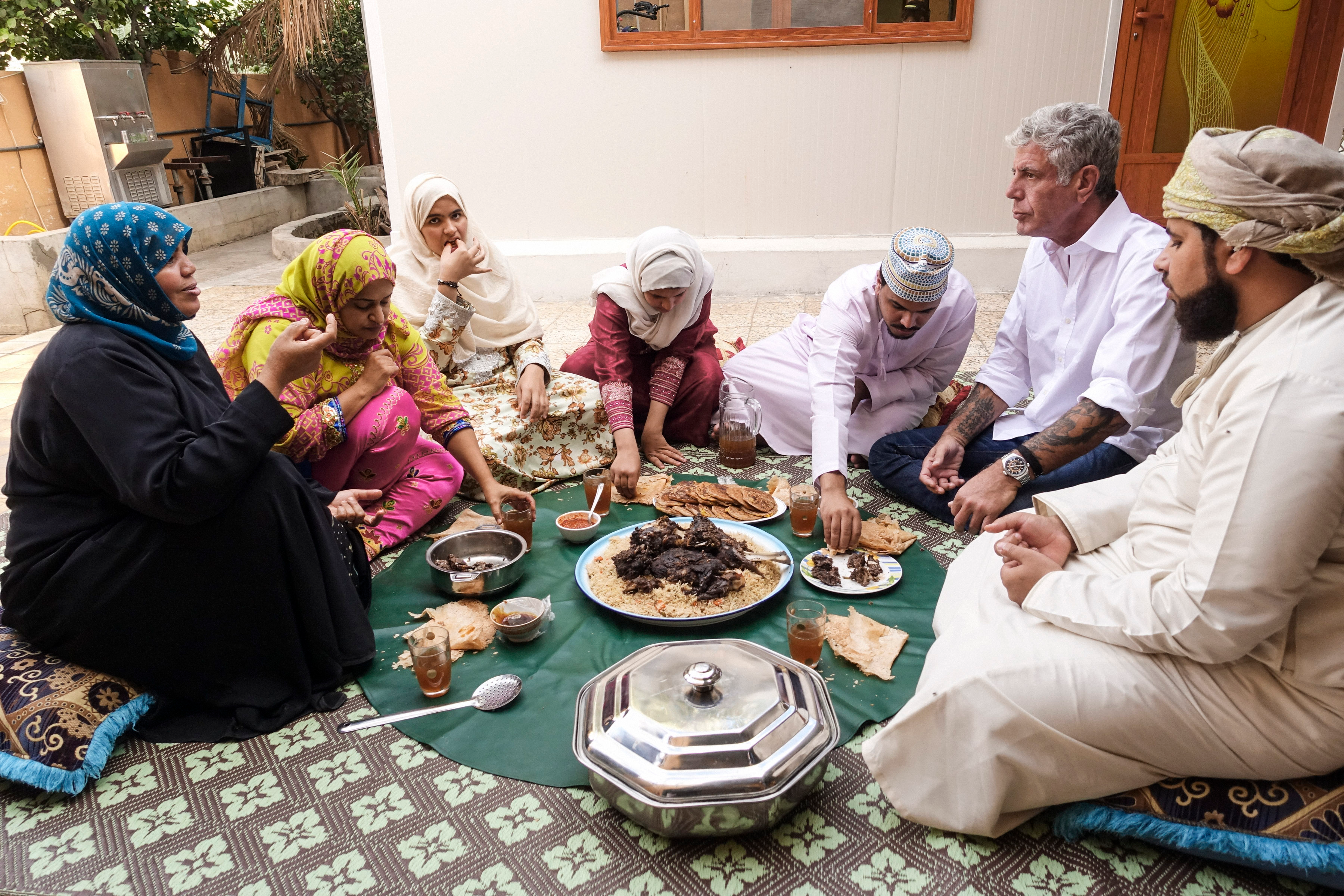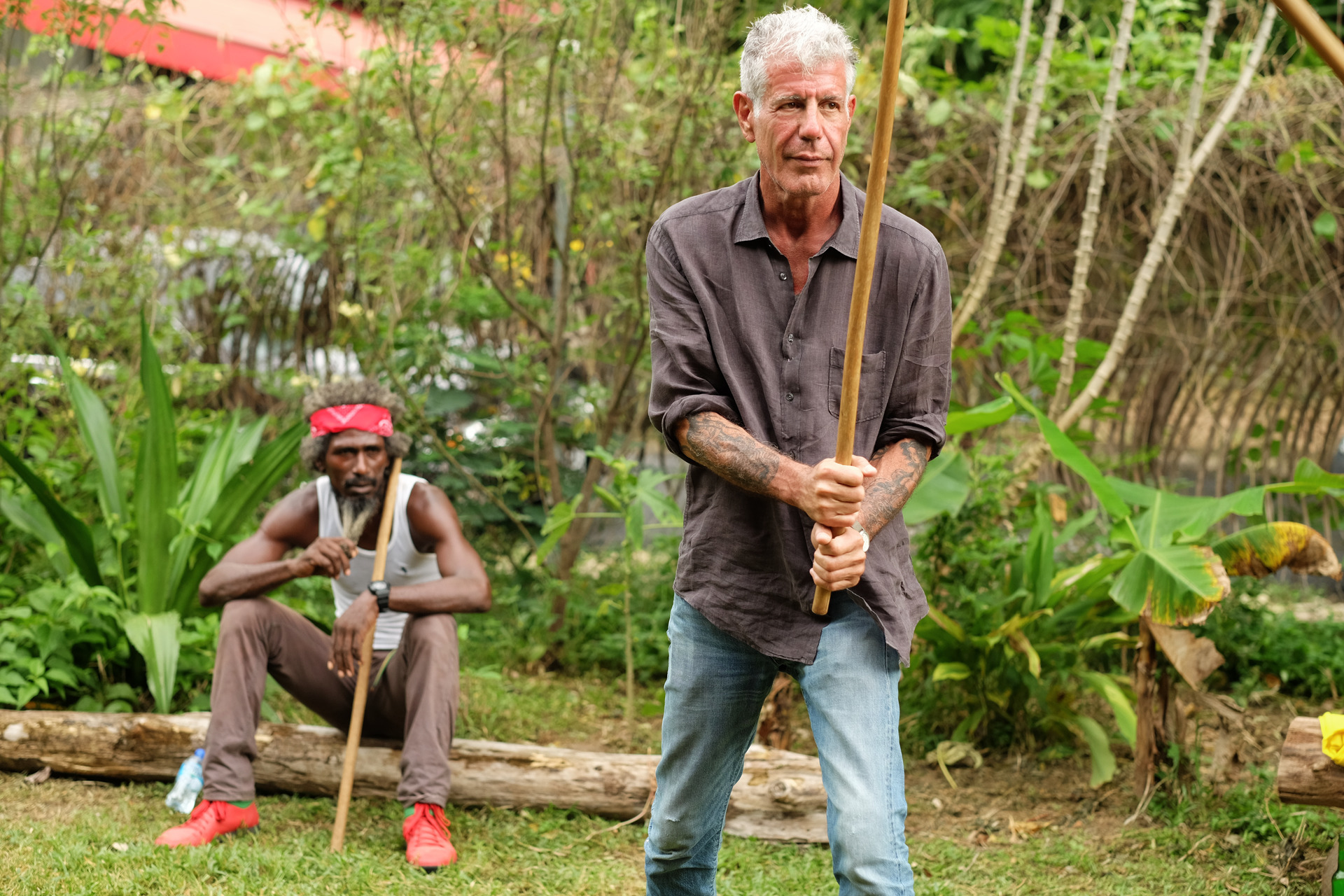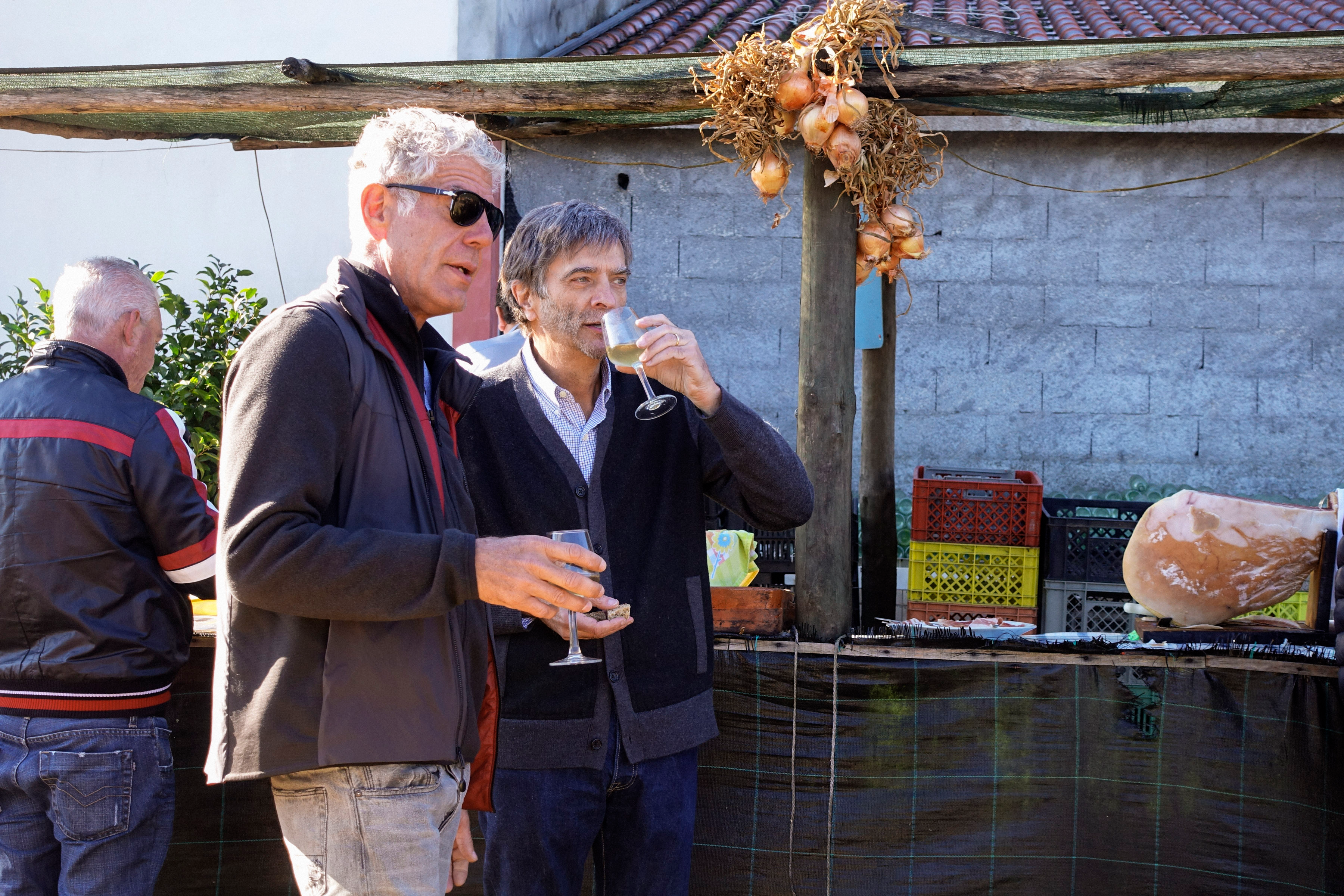Parts Unknown, Season 9: To The Ends Of The World
We may receive a commission on purchases made from links.
This season brings Bourdain to "the ass-end of the world"—that would be the South Pole—but there are plenty of other far-flung locations to explore. He also ventures down a very narrow hallway tucked between two cell phone stores to find the best Nepalese fast food in Queens, and there's plenty more where that came from.
Episode 1: Los Angeles
The itinerary: The second L.A.-based episode of Parts Unknown turns its focus to the stories (and sauces) of Mexicans and Mexican-Americans living in and outside the city. It's clearly a subject close to Bourdain's heart; as with many of his political episodes, and all of the episodes focused on communities which aren't his own, he asks questions, sits back, and listens. Occasionally, it seems as though his own urgency trips him up—there are some uncharacteristic leading questions, as well as one very clumsy transition to an otherwise delightful Danny Trejo appearance—but his obvious desire to do right by the Latino community in Los Angeles, coupled with the typically gorgeous filmmaking, more than makes up for any missteps. The food looks delicious, the conversations are enlightening, the pointed rebuttal of racism and cruelty righteous, and the unexpected turn into the land Morrissey—yes, that Morrissey—is as surprising as it is satisfying.
Looks delicious: Danny Trejo's vegan tacos are probably amazing, the drunken shrimp at Mariscos Chente downright tantalizing, but it's the slice of pan dulce accompanied by foie gras butter at Broken Spanish that's most likely to set mouths watering.
Episode 2: San Sebastian
The itinerary: Like all the best food-centric episodes of Parts Unknown, this is a dangerous hour to watch while hungry. Like all the best episodes centered on culture, it often feels as though you've been covered in an invisibility cloak and dropped in to observe without disrupting this ancient corner of the world. The process of building a boat is captured with the same slow-motion wonder often reserved for the knifework of an accomplished sushi chef—a sequence centered on respect for history, tradition, and craftsmanship. The camera is simply mirroring the quality Bourdain finds in many of the Basque people he spends time with during this episode, including friend and mentor Juan Mari Arzak (pictured above), a titan of Basque cuisine who, with the "gang of twelve," committed himself years ago to both honoring and evolving the culinary traditions of his home. Bourdain's respect and affection for the man, the place, the people, and the food is evident in every frame.
Looks delicious: We learn in voiceover that San Sebastian has more Michelin-starred restaurants per capita than any place else in the world, "but even the everyday joints are superb." Never is that more evident than in the early "poteo" (a pintxos crawl) Bourdain takes with Arzak, his daughter Elena Arzak, and Basque culinary expert Gabriella Ranelli. Endless small, delicious-looking bites.
Episode 3: Laos
The itinerary: One thread that runs through all of Parts Unknown is the importance of seeing the world as it really is, not a sanitized guidebook version, not as we or others would like to pretend it to be. That's at the heart of Bourdain's trip to Laos, a Southeast Asian country still living with the aftereffects of the Secret War, a covert CIA operation between 1964-1973, which resulted in the death of tens of thousands of civilians. Today, there are still millions of undetonated bombs in Laos. There's also a communist regime, as Bourdain gently underlines when we're introduced to a journalist whose job, he notes, is very different from what we understand journalism to be. And as with all episodes of Parts Unknown, there is much beauty in this land, lush and inviting.
Looks delicious: Bourdain shares Or Lam—a Laotian dish here made with wood ear mushrooms, dill, fish, and buffalo, all seasoned with pepper wood—with Bay Area chef James Syhabout and friends, accompanied by cold bottles of Beer Lao.
> Read more about "Laos" in our list of Parts Unknown's most essential episodes.
Episode 4: Queens
The itinerary: Like the L.A.-based season opener, "Queens" feels like a response to the 2016 election, a defiant middle finger to the xenophobic hordes as well as a love letter to the idea of the American melting pot. The focus is necessarily scattered—Bourdain jumps from one unexplored corner of the New York borough to another, wandering into the Nepalese fast food place tucked between and behind two cell phone shops, following a tamale cart as its owner prepares for the day, losing a fast hundo at a racetrack and hunkering down in a diner in the Rockaways, the list goes on. But the very particular joy of exploring an unknown corner of one's own backyard, coupled with the steely-eyed rejection of the notion that diversity somehow makes us weaker, makes for an irresistible energy that percolates throughout. The last act, in which the show introduces us to "bird racing," is one of Parts Unknown's most lovely surprises.
Looks delicious: The soup-filled xiao long bao dumplings at Yu Garden Dumpling House in Flushing are such stuff as dreams are made on.
Episode 5: Antarctica
The itinerary: In the summer, the population at U.S. research center McMurdo Station in the Antarctic swells to a whopping 1,000 residents or so; through the winter months, 150 heartly souls remain at what Bourdain calls "the last un-fucked-up place on Earth." This is one of Parts Unknown's most awe-inspiring episodes—the fact that it exists at all is a tribute to the crew, to technology, to guts, to determination, to the people at McMurdo—but it balances that awe with a matter-of-fact appreciation for the lives being lived here. The taxing reality of non-stop sunlight in summer, darkness in winter. The care taken in preparing food, and the understandable longing for "freshies." The coziness, and the danger. A helicopter trip to the southernmost volcano on the planet at one moment, a history lesson the next, a congenial meal with scientists after that. It's the perfect approach for an episode set in this place: Yes, there's awe, but it's an everyday awe, because for these people, the wonder is a part of life. All that, and penguins, too. (This interview with the production team on how this hour got made is well worth your time.)
Looks delicious: At Lake Hoare Research Camp, Bourdain shares a meal made by Rae Spain, who is described in voiceover as the continent's best cook. Based on the pork tenderloin, roasted vegetables, fresh sourdough, edamame salad, grilled mahi, and cocktails, it sure seems like an accurate descriptor.
Episode 6: Oman
The itinerary: Like "Antarctica," this is an episode where the landscape itself is spectacle. To follow Bourdain through Oman on the Arabian Peninsula is to sense how drawn he is to the desert, which we glimpse often but don't truly enter until the episode's final act. It is also to learn that the pull he feels is contagious. While there's something about the country that clearly arrests the intrepid traveler, he finds room amidst this preoccupation for thoughtful conversations about Oman's complex history, uncertain future, rich culture, remarkable growth, and (obviously) delicious cuisine. By the time we arrive in that desert—Bourdain sitting with people who balance their desire to give opportunities and education to their children with their desire to live in the sand as their parents and grandparents did—it seems as though he's soaked up that contemplative energy. The language of the people he encounters is often simple, yet poetic. Bourdain's notes on the episode mirror that energy. Watching it, it's likely you'll take some of it away yourself.
Looks delicious: The slow pit-roasted goat wrapped in banana leaves and tucked into a palm bag—a special occasion dish called shuwa and regarded as Oman's national dish—arrives early and despite the delicious things that follow, is never topped.
Episode 7: Trinidad
The itinerary: The Parts Unknown portrait of Trinidad is one of the show's most vibrant and, from the perspective of an outsider, one of its most nuanced. The music, scenery, and above all the people of this Caribbean island nation are so captivating that one could be forgiven for not realizing how much is actually learned about the history, economy, politics, struggles, culture, and spirit of Trinidad and those who live there. It makes three things very clear: This is a place with a lot of troubles, it is a place that seems wonderful, and that contradiction is at its very heart.
Looks delicious: Bourdain eats two amazing meals with families—one at an elegant table on a breezy rooftop, the other in a crowded family kitchen. The one thing the two meals have in common is that the food, particularly the Oil Down—a stew made with the starch stable breadfruit—looks filling and amazing.
Episode 8: Porto, Portugal
The itinerary: Have you ever see a pig die? Dial up this chapter, and you will. Bourdain returns to Porto (the place he shot one of his first episodes of television) to once again devour seafood, inhale cheese, savor port (but not talk about it too much—"Don't talk about your damn wine; drink it," he says.). You see how delicious the food looks over and over again, and from time to time, you see a piece of the slaughter—a lamprey bleeding into the pot in which it will boil, a crab flashing its pincers moments before we see it on the tray—but it's all a warm-up for the main event. Not everyone will be able to stomach the sequence, despite how tastefully it's shot, but that's the point. Portugal is where Bourdain first saw an animal slaughtered; he wants us to know where our food comes from, too. Visceral and unforgettable.
(The first chapter of his 2002 travelogue A Cook's Tour is titled "Where Food Comes From" and recounts that first pig slaughter he attended in Portugal. It's an exquisite piece of food writing.)
Looks delicious: The pig does eventually become a feast, but the cheese feast in a wine cellar is every bit as appetizing. As Bourdain puts it: "Smells like dirty feet, tastes like heaven."
